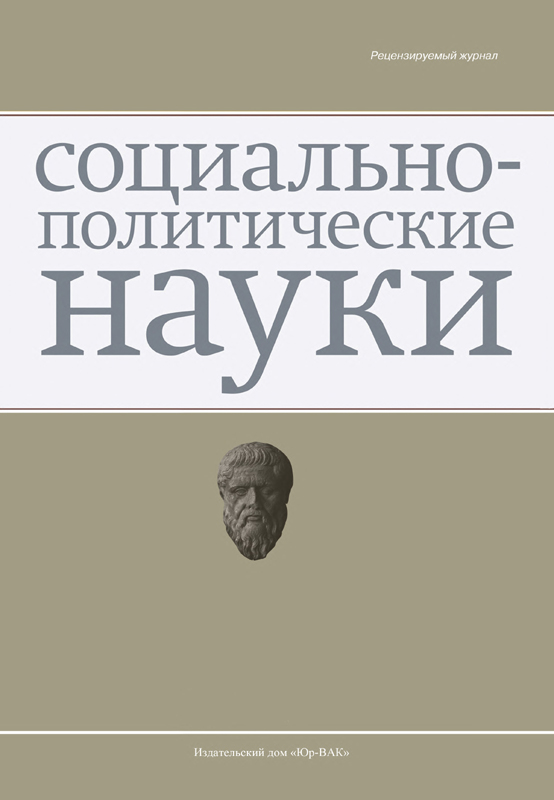The Concept of “Religio” in Cicero’s “Verresian”. The Experience of Analysis and Interpretation
- 作者: Tsyganov R.V.1
-
隶属关系:
- Vladimdir State University named after Alexander and Nikolay Stoletovs
- 期: 卷 13, 编号 3 (2023)
- 页面: 97-102
- 栏目: Social and Political Philosophy
- URL: https://journals.eco-vector.com/2223-0092/article/view/562919
- DOI: https://doi.org/10.33693/2223-0092-2023-13-3-97-102
- EDN: https://elibrary.ru/IABOBO
- ID: 562919
如何引用文章
详细
This article is devoted to the analysis of the interpretation of the term “religio” used in the speeches known to us by Mark Thulius Cicero “Against Guy Verres” (“Verresiana”, “in verrem”, “Orationes Verrinae”). The works of Cicero are viewed in the context of the historical and political processes that took place in the Roman Republic in the 1st century BC. The lexemes derived from “religio”, their meanings and meanings used in the texts of “Speeches...” and their translations from Latin by V.A. Alekseev and F.F. Zelinsky are systematized. Analysis of the meanings of the word “religio” in Cicero’s “verresian” requires the use of materials from linguistics and a number of other scientific directions: philosophy, sociology, political science, religious studies, etc. “Religio”, their correspondences in the Russian language of the beginning and middle of the XX century were revealed, when the translations of V.A. Alekseev and F.F. Zelinsky were created.
全文:
作者简介
Roman Tsyganov
Vladimdir State University named after Alexander and Nikolay Stoletovs
编辑信件的主要联系方式.
Email: tsiganov2000@mail.ru
ORCID iD: 0000-0002-2082-7625
post-graduate student at the Department of Philosophy and Religious Studies
俄罗斯联邦, Vladimdir参考
- Beltrao da Rosa C., Santangelo F. Cicero and Roman Religion. Stuttgard, 2020. 158 р.
- Cicero M.T. Against Verres. Transl. by C.D. Yonge. Second pleading. Book 1. Wikisource. URL: https://en.wikisource.org/wiki/Against_Verres/ Second_pleading/Book_1 (data of accesses: 20.04.2023).
- Cicero M.T. In Verrem. The Latin Library. URL: https://www.ae-lib.org.ua/texts-c/cicero__in_verrem__lt.htm (data of accesses: 10.09.2021).
- Spencer C. Cicero and the rise of deification at Rome. Cambridge University Press, 2013. 208 p.
- Goar R.J. Cicero and the state religion. Amsterdam, 1972. P. 111.
- Guillaumont F. Philosophe et Augure: Recherches sur la theorie ciceronienne de la divination. Brussels, 1984. 214 p.
- Rawson E. Intellectual life in the Late Roman Republic. London, 1985. 355 p.
- Rufus Q.C. History of Alexander the Great. Surviving books. V.S. Sokolov (ed.). Moscow, 1963. Pp. 87, 157, 277.
- Great Russian Encyclopedia: Lucretius. URL: https://bigenc.ru/philosophy/text/2150540 (data of accesses: 12.09.2021).
- Cicero M.T. About divination. In: Philosophical treatises. Moscow, 1985. 382 p.
- Plutarch. Cicero. Comparative biographies in two volumes. Moscow: Nauka, 1994. URL: http://ancientrome.ru/antlitr/t.htm?a=1439004000 (data of accesses: 09/16/2021).
- Livy T. The history of Rome from the founding of the city. In 3 vols. Vol. I. Moscow, 1989. P. 367.
- Lucretius T. On the nature of things. I. Rachinsky (transl.). Moscow, 1913.
- Fedorov D.A. Socio-philosophical views of Mark Tullius Cicero: Dis. ... of Dr. Sci. (Philos.). St. Petersburg, 2018 P. 292.
- Theophrastus. Characters. Library of works of ancient and Byzantine authors. Leningrad, 1974. URL: http:// myriobiblion.byzantion.ru/feofrast.htm (data of accesses: 12.03.2023).
- Cicero M.T. Complete collection of speeches in Russian translation in 2 volumes. St. Petersburg, 1901. Vol. 1: 81–63 BC. 767 p.
- Shokhin V.K. Philosophy of religion and its historical forms (antiquity – late XVIII century). Moscow, 2010. P. 278.
- Shtaerman E.M. Social foundations of the religion of ancient Rome. Moscow, 1987. P. 151.
- Shtyrkov S.A. Religion, or the Bond of Piety. St. Petersburg, 2021. 172 p.
补充文件








